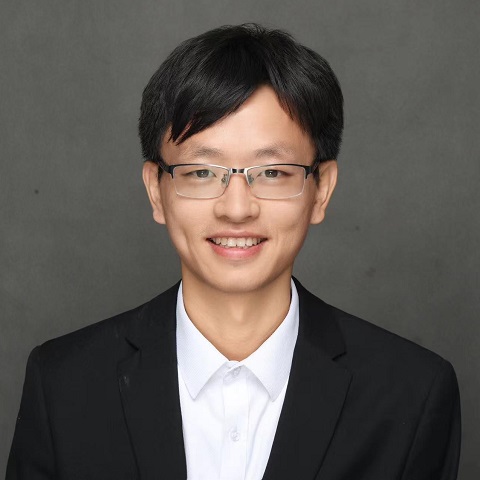About
LLM+KG:
Large Language Models (LLMs), e.g., ChatGPT and LLaMA are revolutionizing the fields of artificial intelligence and natural language processing (NLP). Recent LLMs browse Web knowledge and learn from external sources, warranting the coupling of knowledge graphs (KGs) and LLMs. The possibility of bridging KGs with LLMs has attracted increasing interest in the area of knowledge engineering. On one hand, LLMs can be enhanced with KGs to provide answers with more contextualized facts. On the other hand, downstream tasks, e.g., KG curation, embedding, and search can also benefit by adopting LLMs. It remains an interesting direction to explore effective interactions between LLMs and KGs, where many recent advances come from deep learning, information retrieval, NLP, and computer vision domains. The workshop, titled “LLM+KG: Data Management Opportunities in Unifying Large Language Models + Knowledge Graphs”, is targeted for data management researchers, aiming to discuss interesting opportunities such as data cleaning, modeling, designing of algorithms and systems, scalability, fairness, privacy, usability, explainability, and etc.
Call for Papers
We solicit unpublished papers discussing issues and successes under the broad category of LLM-enhanced KGs, KG-enhanced LLMs, and unifying LLMs + KGs in the following areas (and beyond):
KG-enhanced Pre-training of LLMs
KG-enhanced Fine-tuning of LLMs
KG-enhanced Inference of LLMs
KG-enhanced Validation and Explainability of LLMs
LLM-enhanced KG Creation
LLM-enhanced KG Completion
LLM-enhanced KG Embedding
LLM-enhanced KG Querying
LLM-enhanced KG Analytics
LLM-enhanced Domain-specific KG Applications
Additionally, the paper must have a clear data management focus, e.g., discussing data management solution(s) such as (but not limited to):
Data and Input Modeling for LLMs+KGs
Data Cleaning, Integration, and Augmentation with LLMs+KGs
Multi-modal Data Management with LLMs+KGs
Vector Data Management for LLMs+KGs
Accuracy and Consistency of LLMs+KGs
Efficiency and Scalability of LLMs+KGs
Bias and Fairness with LLMs+KGs
Explainability and Provenance of LLMs+KGs
Usability of LLMs+KGs
Security and Privacy for LLMs+KGs
Optimizing KG Databases and Systems with LLMs
Empirical Benchmark and Ground Truth in Emerging Applications with LLMs+KGs
Submission Details:
We solicit and select three types of papers
Survey Papers/Tutorials: these papers survey the related work in specific sub-areas and lay out the agenda for future work.
New/ Late-breaking Results: these papers report the newest preliminary results about the most promising problems in the field.
Vision Papers: these papers are devoted to discussing problems that we face currently and anticipate for the future.
We welcome the papers that fall under short papers of at most 9 pages and long papers up to 18 pages, including bibliography. Submissions must adhere to CEUR-WS formatting guidelines with 1-column style available at: http://ceur-ws.org/Vol-XXX/CEURART.zip. An Overleaf page for LaTeX users is available as template at: https://www.overleaf.com/read/xztwvxtwbzrn#ac9ca2. All submissions must be submitted in PDF through: https://cmt3.research.microsoft.com/LLMKG2024/. Submissions will be reviewed in a single-blind manner, and all author names and affiliations should be included. Papers that do not follow the guidelines or are not within the scope of relevant topics will be desk rejected. We also expect that publications from DB venues, e.g., SIGMOD/VLDB/ICDE/EDBT etc. are cited.
Submissions will be reviewed by at least three members of the Program Committee. All accepted papers will be published online via CEUR-WS. The workshop will be in-person and at least one author of each accepted paper is required to register. Best papers will be invited to submit extensional versions to the special issue: Neuro-Symbolic Intelligence: Large Language Model Enabled Knowledge Engineering in the World Wide Web Journal, and the Data Intelligence Journal.
Important dates
Paper submission deadline: May 15, 2024 (11:59 PST)
Notification of Acceptance: June 20, 2024
Camera-ready version due: July 20, 2024
Workshop at VLDB 2024: August 25, 2024
Accepted Papers (TBD)
Program (TBD)
The workshop will be held on August 25th during VLDB 2024.
Invited Talks (TBD)
Organization
Workshop Co-Chairs:

Arijit Khan
Aalborg University, Denmark

Tianxing Wu
Southeast University, China

Xi Chen
Tencent, China
Program Committee Members:
Sheng Bi - Southeast University, China
Angela Bonifati - Univ. of Lyon, France
Yongrui Chen - Southeast University, China
Yubo Chen - Institute of Automation, Chinese Academy of Sciences, China
Jiaoyan Chen - The University of Manchester, UK
Peng Fang - Huazhong University of Science and Technology, China
Jonathan Fürst - ZHAW Zurich University of Applied Sciences, Swiss
Rainer Gemulla - Universität Mannheim, Germany
Lei Hou - Tsinghua University, China
Ernesto Jimenez-Ruiz - City, University of London, UK
Xiangyu Ke - Zhejiang University, China
Wolfgang Lehner - TU Dresden, Germany
Bohan Li - Nanjing University of Aeronautics and Astronautics, China
Chuangtao Ma - Aalborg University, Denmark
Essam Mansour - Concordia University, Canada
Sharad Mehrotra - U.C. Irvine, USA
Arash Termehchy - Oregon State University, USA
Xin Wang - Tianjin University, China
Haofen Wang - Tongji University, China
Meng Wang - Tongji University, China
Yuxiang Wang - Hangzhou Dianzi University, China
Shiyu Yang - Guangzhou University, China
Wen Zhang - Zhejiang University, China
Xiang Zhao - National University of Defense Technology, China
